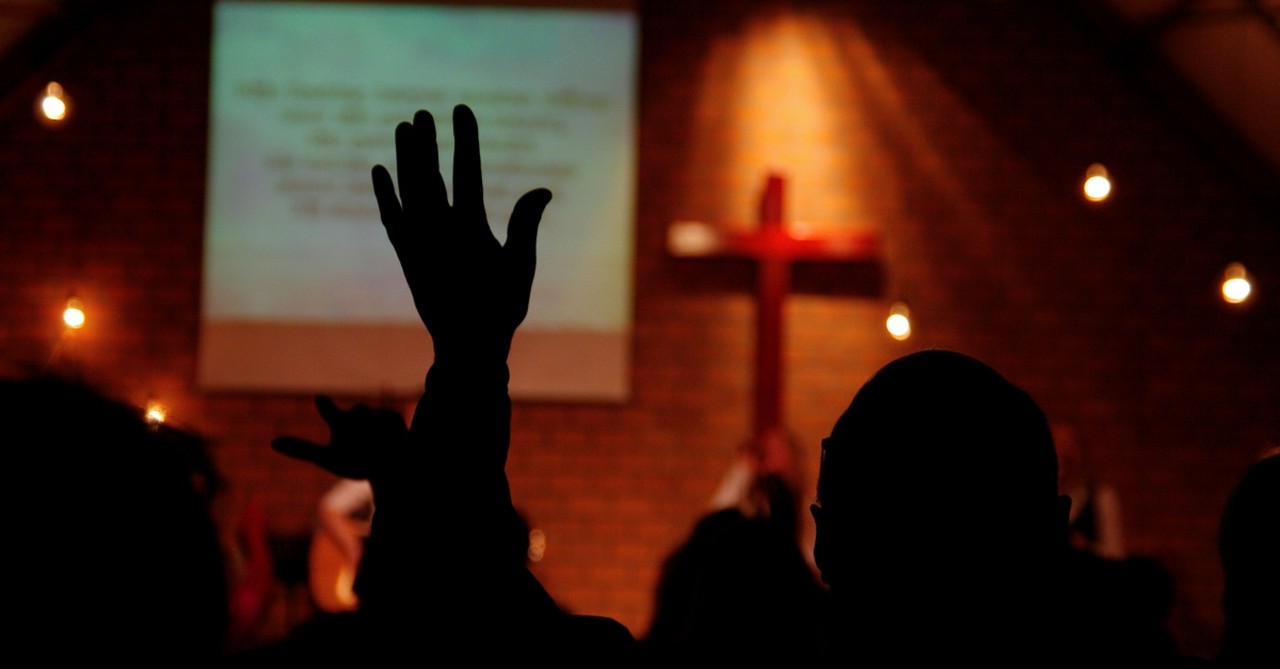
When most people think of Pentecost, they think of the second chapter in the book of Acts when followers of Jesus were gathered in an upper room. The Holy Spirit showed up as a mighty rushing wind, the flames of fire appeared over the heads of those in that room, and they began to speak in languages they never learned.
Pentecost had its roots in an Old Testament feast day called Feast of Weeks. The word Pentecost comes from a Greek word that means "fifty," and Pentecost takes place fifty days after the holiday prior to it, Passover. When the Lord initially instituted this feast, it was connected to harvest festivals, which had the focus of expressing gratitude to God for delivering the Israelites out of Egypt and giving them their own land, according to Jews for Jesus. There are many ways modern Christians can still find meaning in Pentecost today -- here are 4 of them.
Photo Credit: ©iStock/Getty Images Plus/middelveld
1. A Time to Remember Our Story

1. A Time to Remember Our Story
SLIDE 1 OF 4
Pentecost can be looked at as a time of remembering because when originally given, it was intended to be a reminder to the Jews of the miracles that took place along the journey to receiving their own land. So modern-day Christians can look at Pentecost as a way of remembering the journey on which the Holy Spirit led them when they came to know Jesus as their personal Lord and Savior. Some Christians have very dramatic stories about how they came to recognize Jesus as their personal Lord and Savior, and for others, it was more of a quiet wooing or drawing of the Holy Spirit that led them to that moment. No matter how a person comes to know that Salvation is by grace through faith and not by works (Ephesians 2:8-9), it's always a miracle. And all of heaven rejoices over each miracle of salvation (Luke 15:10).
Photo Credit: ©GettyImages/skynesher
2. A Time to Remember God's Directives

2. A Time to Remember God's Directives
SLIDE 2 OF 4
Pentecost is also tied into Exodus 19:16-21. There is an amazing visual there that sounds really familiar to the scripture in Acts. In a nutshell, there was thunder, lightning, a loud trumpet blast, and fire, and the mountain trembled because the presence of God was resting on it. The visuals are similar to what happened in the upper room. Then, in Exodus 20:1-17 God laid out the law. Jesus summarized the law in Matthew 22:34 – 40 when a lawyer asked him, Teacher, which is the great commandment in the law?"
Jesus' response was, "You shall love the Lord your God with all your heart, with all your soul, and with all your mind. This is the first and great commandment. And the second is like it: You shall love your neighbor as yourself. On these two commandments hang all the Law and the Prophets."
The law helps us to understand that we're imperfect. Since no one can keep it perfectly, we're all sinners. None of us are righteous on our own, nor are we justified by our own good deeds (Romans 3:1-26). Therefore, the law is a tool that God can use to help us realize that we need Jesus to be our personal Lord and Savior (See also Voice of Judah Israel for additional details on the giving of the law and the Jewish Pentecost).
Photo Credit: ©GettyImages/Yacobchuk
3. A Time to Remember the Significance of the Resurrection of Jesus

3. A Time to Remember the Significance of the Resurrection of Jesus
SLIDE 3 OF 4
Many people connect the idea of the Resurrection with Easter or Passover, but the reason it's also significant in connection to Pentecost is that Jesus' resurrection from the dead is also symbolic of a Jewish feast day called "Feast of First Fruits" (Leviticus 23:9-11). His resurrection is symbolic of the promise that one day, Christ our Redeemer will return, and there will be a great resurrection of those who have passed away and a great catching away of those of us who are still alive.
Photo Credit: ©Getty Images/Tinnakorn Jorruang
4. A Time to Remember that This Life Is Temporary

4. A Time to Remember that This Life Is Temporary
SLIDE 4 OF 4
In the everyday grind of work, family responsibilities, paying the bills, and maybe trying to figure out how to save for future needs, it can be easy to lose sight of the fact that this life is temporary. We're not taking any of the physical things we earn in this life with us when we die. There is another life we'll be stepping into once this one ends, whether we die or we're super blessed with the privilege to still be alive for the second coming of Christ. Remembering this and maybe imagining what we'd like to be "caught" doing when Christ suddenly arrives should bring us a joy that's way beyond any other joy we can ever possibly experience.
1 Thessalonians 4:13-14 tells us to comfort one another by remembering that Christ will return one day. Verses 15-18 go on to note, "For this, we say to you by the word of the Lord, that we who are alive and remain until the coming of the Lord will by no means precede those who are asleep. For the Lord Himself will descend from heaven with a shout, with the voice of an archangel, and with the trumpet of God. And the dead in Christ will rise first. Then we who are alive and remain shall be caught up together with them in the clouds to meet the Lord in the air. And thus, we shall always be with the Lord. Therefore, comfort one another with these words."
While no one knows the time or day of Christ's return (Matthew 24:36), Jesus did give us some signs to watch, which are stated throughout most of the 24th chapter of Matthew and the 21st chapter of Luke. In fact, Luke 21:28 also gives us these encouraging words: "Now when these things begin to happen, look up and lift up your heads, because your redemption draws near."
Related Resource: This is Where God's Temple Resides Today
In this episode of the Salty Saints Podcast, Randy and I dive deeper into the concept of the temple, building on our previous discussion. We explore the significance of Herod's Temple during Jesus' time, noting that while it was an impressive structure. We recount the six recorded instances of Jesus at the temple, highlighting key moments such as his circumcision, bar mitzvah, and the cleansing of the temple. We discuss the transition from the physical temple to the idea that we, as believers, are now the temple of God. This shift is rooted in scripture, particularly in Paul's letters, where he emphasizes that our bodies are temples of the Holy Spirit. We reflect on the implications of this truth, including our responsibility to maintain purity and represent God well in our actions.
The episode also touches on the significance of Pentecost, where the Holy Spirit descends upon the believers, marking a pivotal moment in which God dwells within His people. We draw connections to biblical history, from the Garden of Eden to the Tower of Babel, illustrating how God's desire to be with humanity culminates in the church today. Ultimately, we encourage our listeners to embrace their identity as temples of God, equipped with the Holy Spirit to bring light into the world.If this episode helped you think more clearly about your faith, be sure to subscribe to Salty Saints on Apple or Spotify so you never miss an episode!
Photo Credit: ©iStock/Getty Images Plus/DGLimages

Originally published May 27, 2025.







